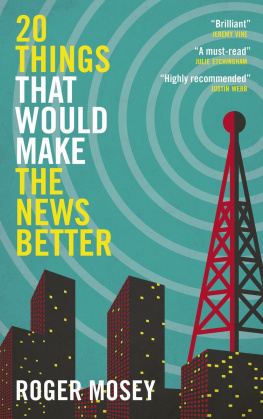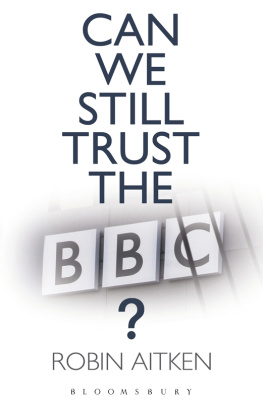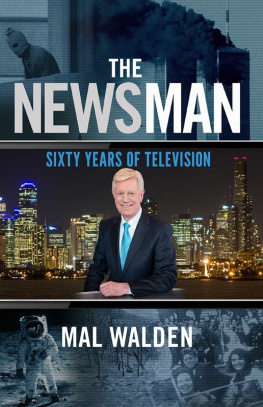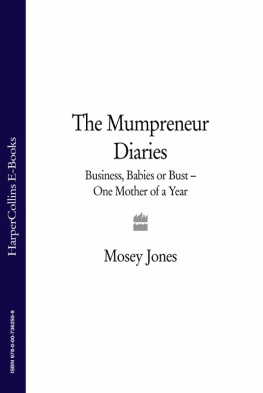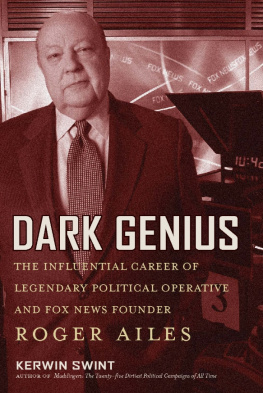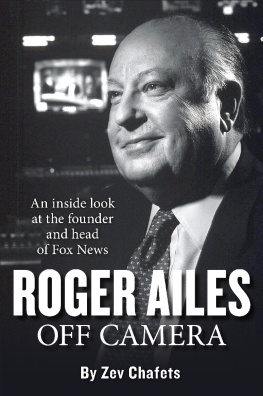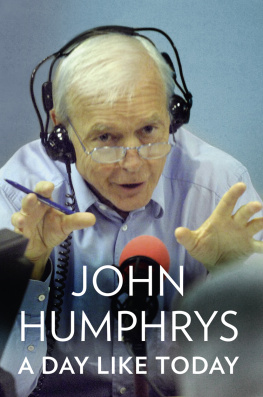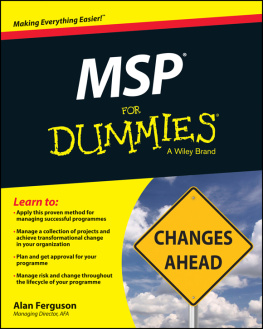PREFACE
I WAS JAMMED INTO a Tube train on my way home one night in 2009 when I saw my face in the paper being read by the man next to me. A little further along the District Line, the crowd thinned enough for me to open my own copy of the Evening Standard and read the story. It was accusing BBC executives of being overpaid, which was true, and aboard a gravy train, which was not an accurate description of my working day and my journey that evening. But the item was fair game: the BBC and its employees should be accountable. Those tend to be the introductions that most people, like my fellow Tube travellers, have to BBC executives; and in recent years the stories have been supplemented by the periodic crises that the corporation has endured. We became used to the idea that we might become the target of the moment as we watched colleagues becoming embroiled in controversies and sometimes defenestrated. Yet many of the commuters alongside me would be going home to watch BBC programmes, which mostly they would enjoy. The BBC has thrived in the digital age in a way that its critics didnt expect, and it remains one of the worlds most successful public service broadcasters.
I first thought about writing this book when I myself experienced so vividly this contrast between the glories of the BBC and its profound lows. In 2012, I led the BBCs coverage of the London Olympics, which was praised to the highest of heavens, and then I was one of the executive team during the Savile crisis as we saw our reputation plummet and the director-general obliged to resign. George Entwistles departure was marked on the front page of The Sun by the initials BBC spelling out Bye Bye Chump. With the passing of the years, which included my leaving the BBC and moving to become the head of a college in Cambridge, I wanted to give a sense of what it had been like in those times. Of course, BBC executives have written previously about what its like inside the corporation, but that was some years ago. I liked the idea of updating the narrative taking in more recent developments in news and sport, along with an account of the experience of working on the Olympic Games. I hope I can best do that by telling my own story, and offering snapshots of the people I met, not only in my thirty-three years as a servant of the corporation but also before and after the BBC.
This is not, therefore, a treatise on BBC Charter renewal or the future of the licence fee. Those are matters for the new Conservative majority government and the corporations current leadership team. I trust that this book has some pointers about when the BBC is at its best, and I owe a lot myself to mentors who were evangelistic about journalistic rigour and a spirit of independence and intellectual challenge. I was inspired as an employee, and I continue to be captivated as a consumer, by programming with soaring ambition. I shy away from the mass-produced stuff that merely fills a schedule; and I believe the BBC is most effective when it frees its staff to be creative, and resists the itch to control even more from the centre.
These are personal opinions, just as the book is my own narrative. There is consequently a health warning. You cannot get to the level I reached in the BBC without having detractors as well as supporters. Not everyone will agree with my view of events. But I was always cheered up when I was being criticised, internally or externally, by the realisation that it was my opponents who would sometimes portray me as unknowable or too much of a corporate politician. My friends, however, would always know precisely what I was up to, and they reprimanded me if I threw myself over-enthusiastically into the gamesmanship of BBC power. The news presenter Huw Edwards, for instance, had the uncanny ability to read my mood of the day without any contact with me. I would receive texts from him correctly analysing what I was thinking about a topic that he knew, by instinct, was on my mind. And this must surely be the right way round: imagine if you were transparent to your detractors but unreadable to your allies. So I am grateful every day for the profound friendships I have made in the BBC, and to the three godchildren I have acquired from colleagues, along with shared trips and holidays, food and drink. I couldnt have kept going during the bad times without the comradeship and humour of friends and colleagues, and they were the people with whom I shared the proud moments too.
Many of those individuals have helped me in the writing of this book. Id like to thank Les Sheehan, Michael Forte, Chris Rybczynski, Conrad and Annabel Walker, my agent Alex Armitage, George Entwistle, Dominic Coles, my cousins Brenda Hunter and Lucy Pilkington, Anthony Lewis, Michael Tilby the Vice-Master of Selwyn College, Simon Heffer, Joanna Manning-Cooper, Jackie Brock-Doyle, James and Eleanor Naughtie, John Humphrys, Dave Gordon, Mark Thompson, Mark Byford, Amanda Farnsworth, Lorraine Heggessey, Paul Reynolds and many more who read sections of the book and helped sharpen my memory of events. Memoirs by Kevin Marsh, Greg Dyke and John Birt were useful accounts of BBC times that I lived through, as was All Our Todays by Paul Donovan. Finally, Im grateful to Iain Dale, my editor Olivia Beattie, and the team at Biteback for encouraging me to write the book I wanted to write, for which freedom I am deeply appreciative.
CHAPTER 1
2012
F OR SEVEN YEARS I had known that 2012 would be the biggest year in my professional life. For the three years that I spent as the BBCs director of London 2012, I was working towards just one goal: delivering a successful year of events for the BBC. What I could never have envisaged was that it would turn out to be such a combination of elation and dejection. In 2012 there were the proudest moments of my BBC career but also the ghastliest lows, during which I became certain that I needed to get out of the corporation.
When the New Years Eve fireworks signalled the start of London 2012, forming Olympic rings above the crowds lining the Thames, I felt a sense of relief that it was finally here. The story that had begun with the IOC making its choice of London seven years earlier was entering its final and most exciting stage. There was trepidation, too, about what lay ahead. Many of the public believed the Games would be a national embarrassment, and the easiest way of getting a laugh in a comedy show at that time was to predict what a dud London 2012 would be. Those of us involved in the planning realised the scale of what was being attempted in the intermittent chaos of our capital city, and I doubted that we would get through the summer without terrorism or transport chaos or public derision. So it was one of lifes most joyous surprises when London surpassed all expectations with the triumphs of its Olympic year, and the BBC shared the plaudits too. But only a few weeks later, BBC executives were clambering from the wreckage of one of the corporations worst crises.
One of the pleasures of being the director of London 2012 in the run-up to the Games was that I had little to do with BBC politics. There was more than enough real politics with the government, the mayor, the IOC and the rest. But through the first half of 2012 there was the background of the search for a new director-general, after the BBC Trust chairman Lord Patten had unhelpfully for the incumbent Mark Thompson signalled the start of the process in January. He had used a


